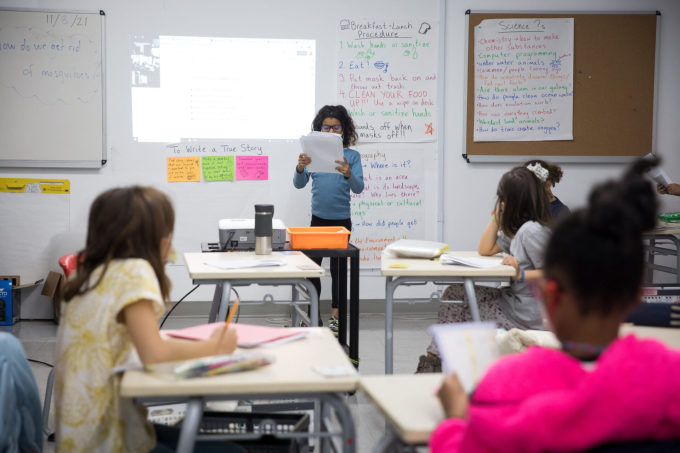The quality of public schools in Germany is said to be declining due to deteriorating facilities and a shortage of teachers.
In Germany, children attend free school and the majority go to public schools near their homes. The German statistical office reports that 830,000 children will start school in 2023, a record high in the last 20 years.
However, many experts believe that the quality of public education in Germany has declined compared to the past. According to DW, many public schools are in disrepair, often having to close for repairs; some are slow to digitize or lack the funds to purchase computers and provide stable Wi-Fi for students.
The shortage of teachers is also an alarming problem. According to Dagmar Wolf, a researcher at Robert Bosch, the organization that publishes German school statistics, the country currently lacks approximately 30,000-40,000 teachers at all levels. By 2030, this number could reach around 80,000.
The reason is that the number of teachers in the profession is declining, while young teachers are not guaranteed employment, according to Heinz-Peter Meidinger, president of the German Teachers' Association. More and more are leaving the profession due to burnout and poor working conditions.
Meanwhile, the Kiel Institute for World Economy (IfW Kiel) assesses that the German government is investing too little in infrastructure.
"Our analysis shows that investments in education and research, which are essential, account for a very small percentage of Germany's budget," said Claus-Friedrich Laaser, an expert at IfW Kiel.
The PISA (International Assessment for 15-year-olds) results, published in November by the Organization for Economic Cooperation and Development, showed that German students' scores in Mathematics, Science , and Reading Comprehension had all declined compared to previous years.

A classroom in Germany. Photo: German School Brooklyn
The deterioration of public schools is one reason why more and more German parents are sending their children to private schools, with tuition fees of around 2,000 euros (54.8 million VND) per year. According to the German Statistical Office, in the 2022-2023 school year, the percentage of students attending private schools was nearly 10%, compared to just 6% two decades earlier.
Luisa, who lives in Berlin, transferred her two children to a private school, paying $200-$400 (4.8-9.6 million VND) per month, thinking they would have a better learning environment. According to Luisa, her children didn't receive adequate support at the public school, teachers frequently called in sick, and almost none of the children in the class could speak German fluently.
"Public school classes are too crowded for teachers to pay attention to. And teachers really can't give close attention to the more gifted children," she said.
However, social policy expert Stephan Köppe of University College Dublin says there is no evidence to suggest that children in private schools perform better than those in public schools in Germany. The trend of choosing private schools is more common in urban areas.
"The real problem isn't the private schools, but the structure of the school system. What's worrying is the growing dissatisfaction with the public school system," Köppe said.
Doan Hung (According to Deutsche Welle )
Source link





















































































































Comment (0)